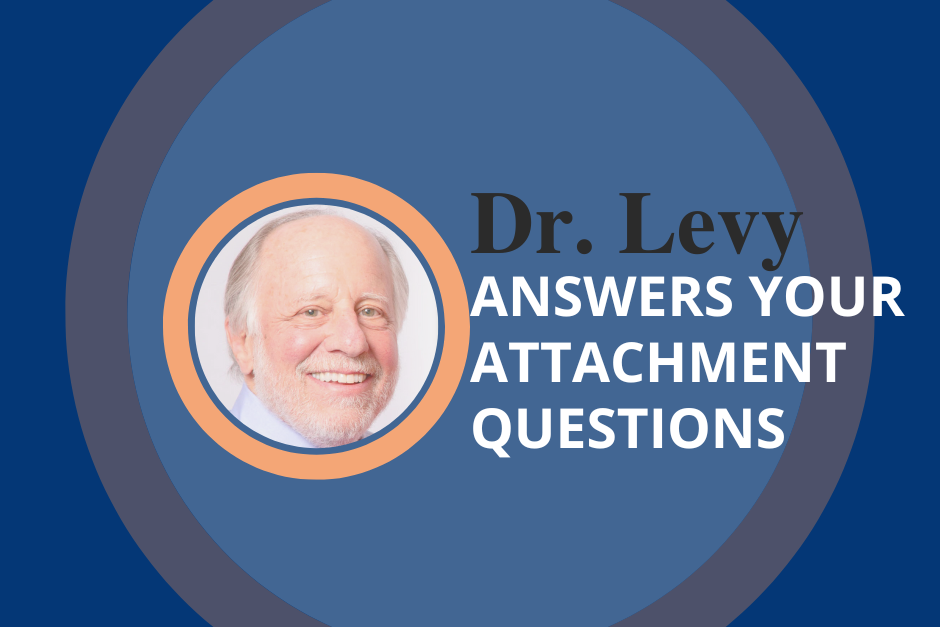Each month, Dr. Levy answers a common question he has received from professionals, caregivers and parents during three decades of pioneering work on attachment theory, treatment and training.
Q: Why is Intensive Outpatient Psychotherapy an effective treatment format for traumatized children, families, adults and couples?
A: Intensive Outpatient Psychotherapy is a treatment modality that Evergreen Psychotherapy Center has been using for 30 years to help individuals and families.
It involves a total of 30 hours of therapy over 10 days: three hours per day for two weeks, with a break for the weekend. Originally, we developed the IOP for patients who were in need of specialized services that were not available in their area. However, over time, it became clear that this short-term, goal-oriented, intensive treatment approach was highly effective in facilitating positive change for resistant, traumatized children, for adults with histories of interpersonal trauma and for traumatized family systems. Today, Evergreen Psychotherapy Center offers these sessions in person and virtually.
We see the following benefits of the IOP approach:
- Families leave their well-established routines and habitual patterns to focus on personal and relationship change for two weeks that are truly a “healing journey.” This commitment of time and energy heightens their sense of purpose, focus, and determination to achieve goals and improve lives.
- The IOP format is a constructive context in which we observe, assess and modify individual behavior and family dynamics. Parent-child, marital, family-of-origin and sibling issues become apparent in daily therapy sessions, and while discussing experiences out-of-session. Family members practice and learn new behaviors, coping skills, parenting concepts and methods, and ways of communicating and problem-solving. These new behaviors, skills and patterns of interaction are reviewed and reinforced each day in therapy sessions, and family members are encouraged to continue the process of change by repeated practice following therapy sessions.
- The consistency, momentum and intensity of daily therapeutic experiences increase motivation, reduce defenses and enhance therapeutic rapport. Well-established defenses are difficult to penetrate in traditional once-a-week outpatient psychotherapy, especially with traumatized individuals who are reluctant to reveal deeper emotions and are fearful of vulnerability. Defenses are more likely to be lowered in the intensive format. Motivation and hope are enhanced as goals are set and achieved, and family members have a sense of master (from “victim” to “survivor”). Trust in therapists increases as children and adults perceive these helping agents as knowledgeable, supportive, understanding and helpful.
- It offers a time for “family togetherness,” that includes opportunities for new, positive and enjoyable experiences. Traumatized families rarely have positive interactions in their day-to-day lives. Even though therapy is emotionally challenging and painful at times, there is ample time for families, couples and individuals to have satisfying and fulfilling experiences. We encourage entire families to come, including siblings. Fathers, for instance, who are typically away from the family working, are now available to the spouse and children. Family members can learn and grow together, creating an enhanced level of intimacy and connection.
- It lays a foundation so that continued positive growth and change can continue during follow-up therapy. Intensive therapy fosters self-awareness; facilitates emotional, behavioral and interpersonal change; incorporates parent training and trauma therapy; and “opens the door” for conventional, outpatient therapy to be more effective in the future. Referring therapists are invited to participate with the family in the IOP, which results in better follow-up treatment, and also provides training and supervision to those mental health professionals.
- The IOP allows for a team approach to treatment. With three to six therapists of different genders working together with each family, there is an increased opportunity for observation and feedback, which results in more effective assessment and therapy. Therapists provide diverse input, role models, viewpoints and opportunities for transference. The treatment team also is advantageous and necessary during various therapeutic interventions. For example, one or two therapists will communicate with the child, while other treatment team members offer support and guidance to parents observing via closed-circuit TV. Another example is one therapist role-playing a family member (e.g., “birth mother”) while other therapists help the child or adult process their emotions regarding past interpersonal trauma. The treatment team is also a support system for family members and therapists. Working with traumatized individuals and families can be stressful, and the supportive nature of the treatment team prevents “secondary traumatic stress” in helping professionals.
To learn more about how the IOP program works contact, info@evergreenpsychotherapycenter.com.
Previous articles addressed questions about the Seven Functions of Secure Attachment, the Dependency Paradox, the importance of talking about trauma, the First Year Attachment Cycle, traits of successful and healthy adult relationships, the importance of hope as a part of treatment for trauma, the core concepts of child development, parenting strategies for deescalating conflict and the importance of touch to fostering attachment.


